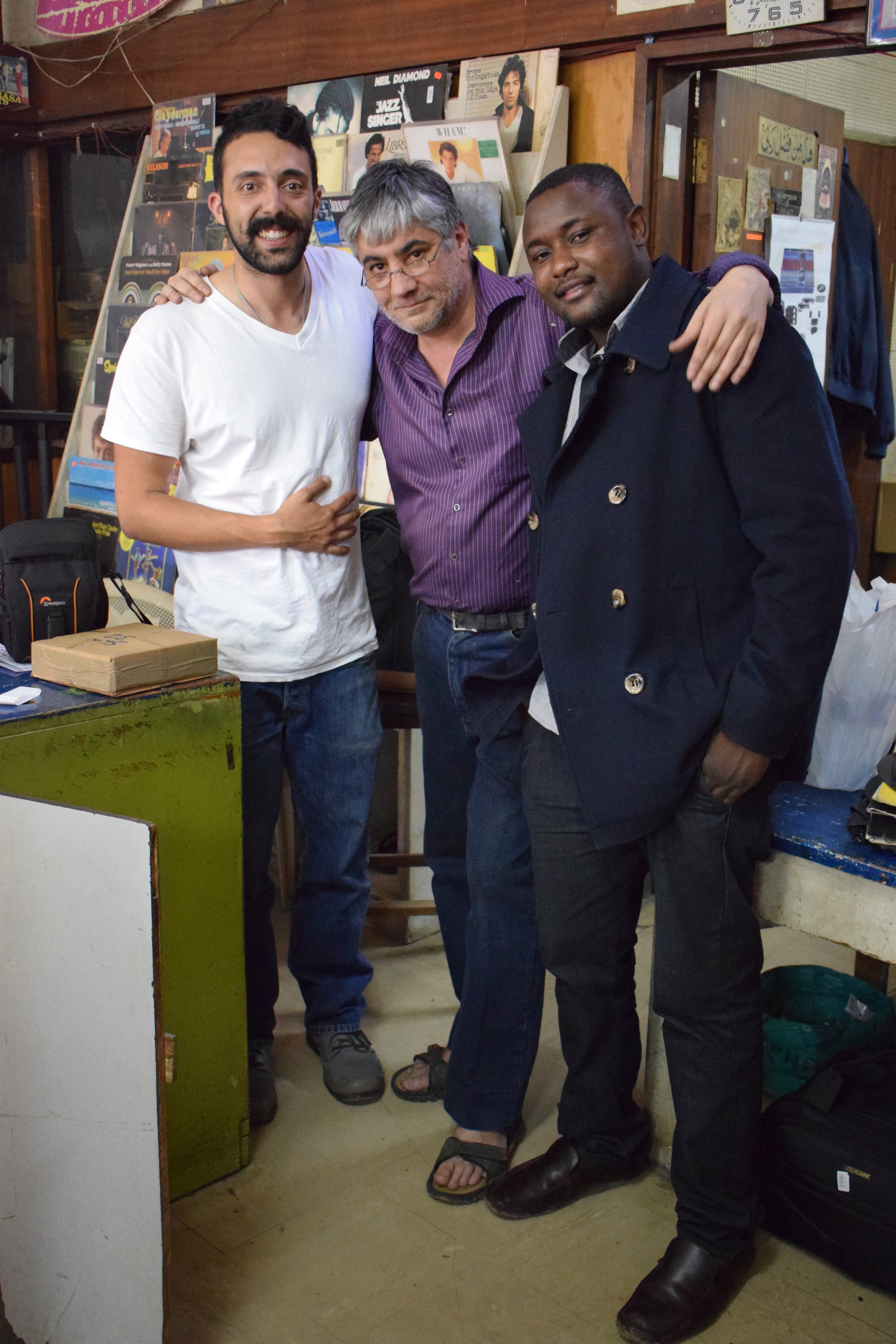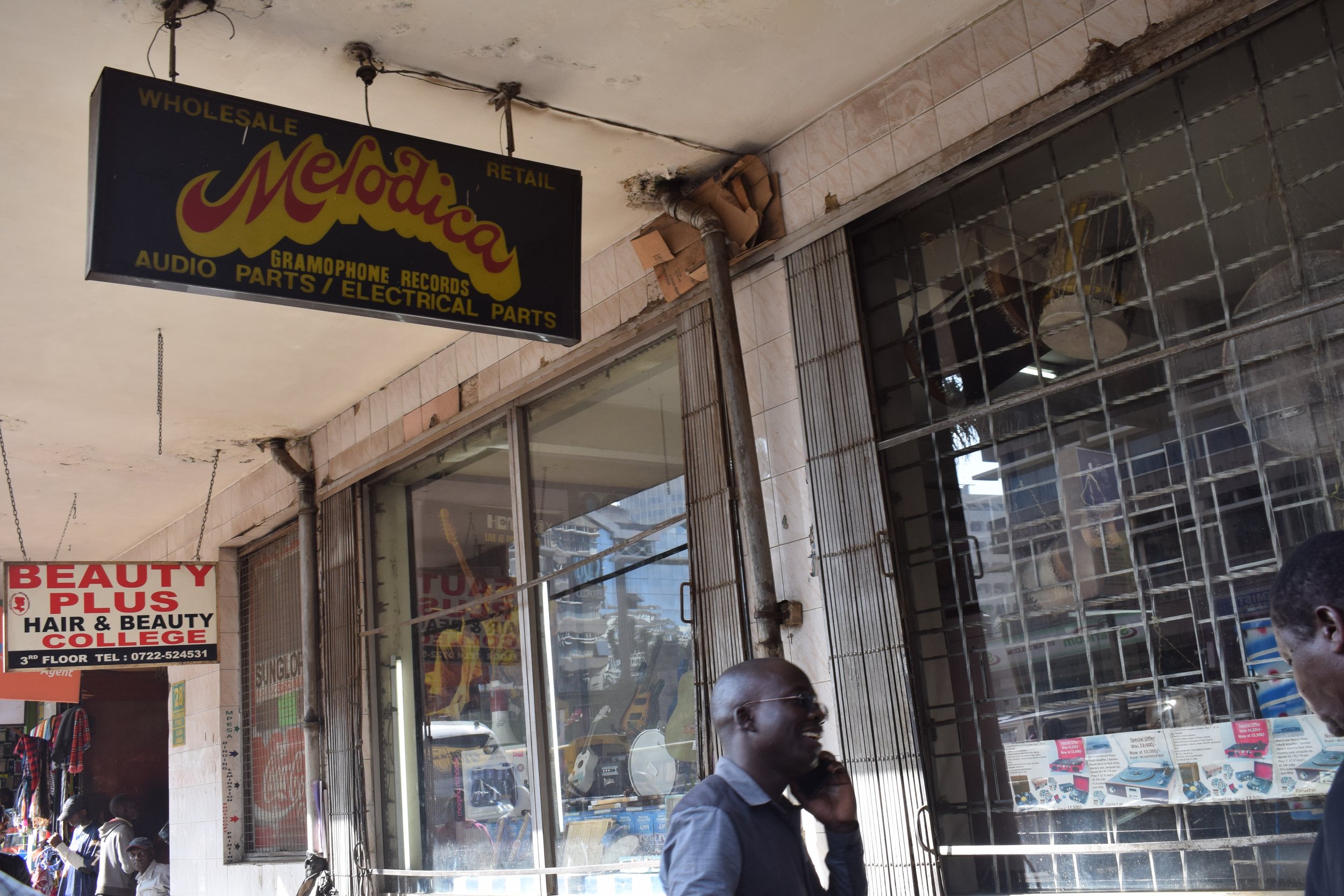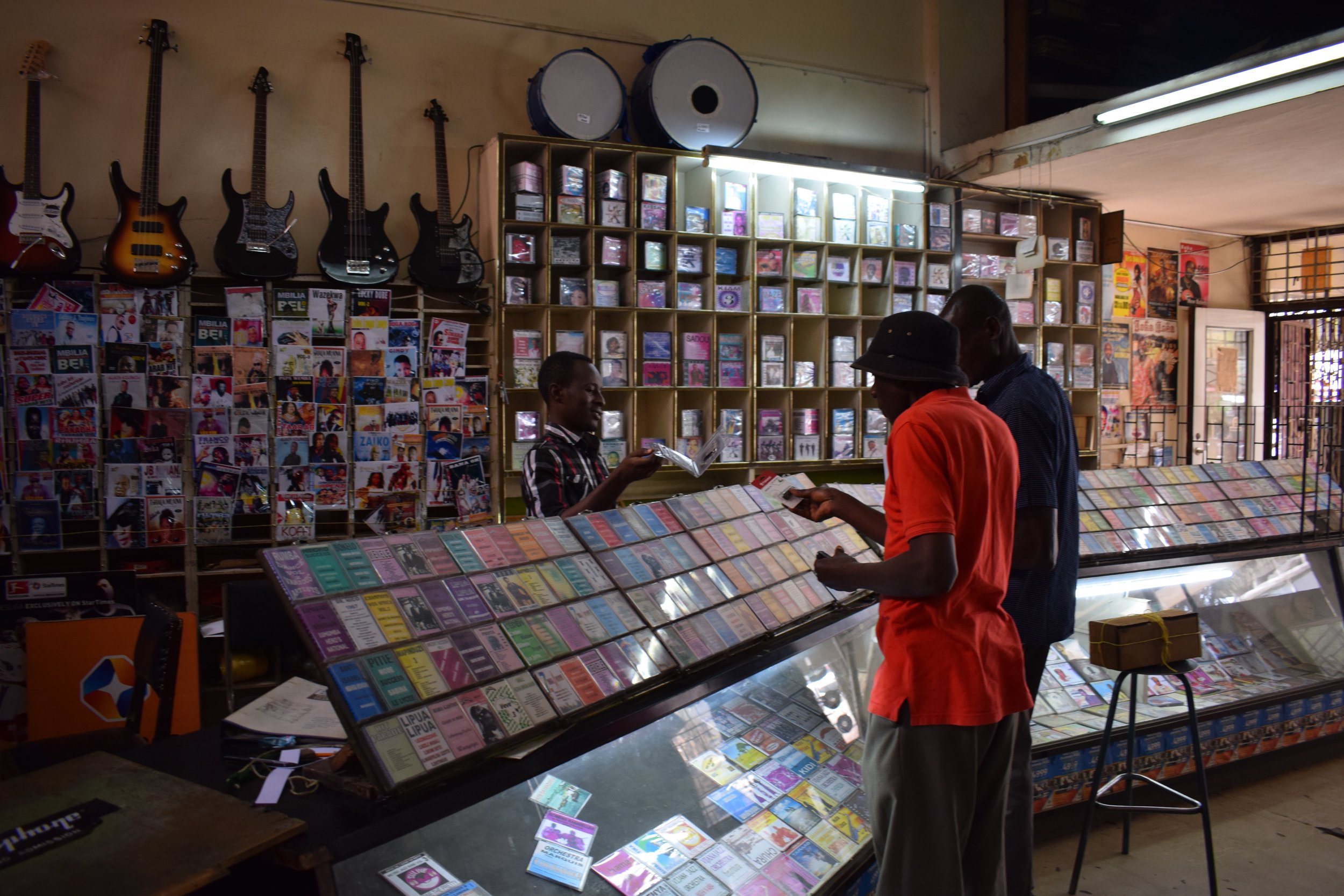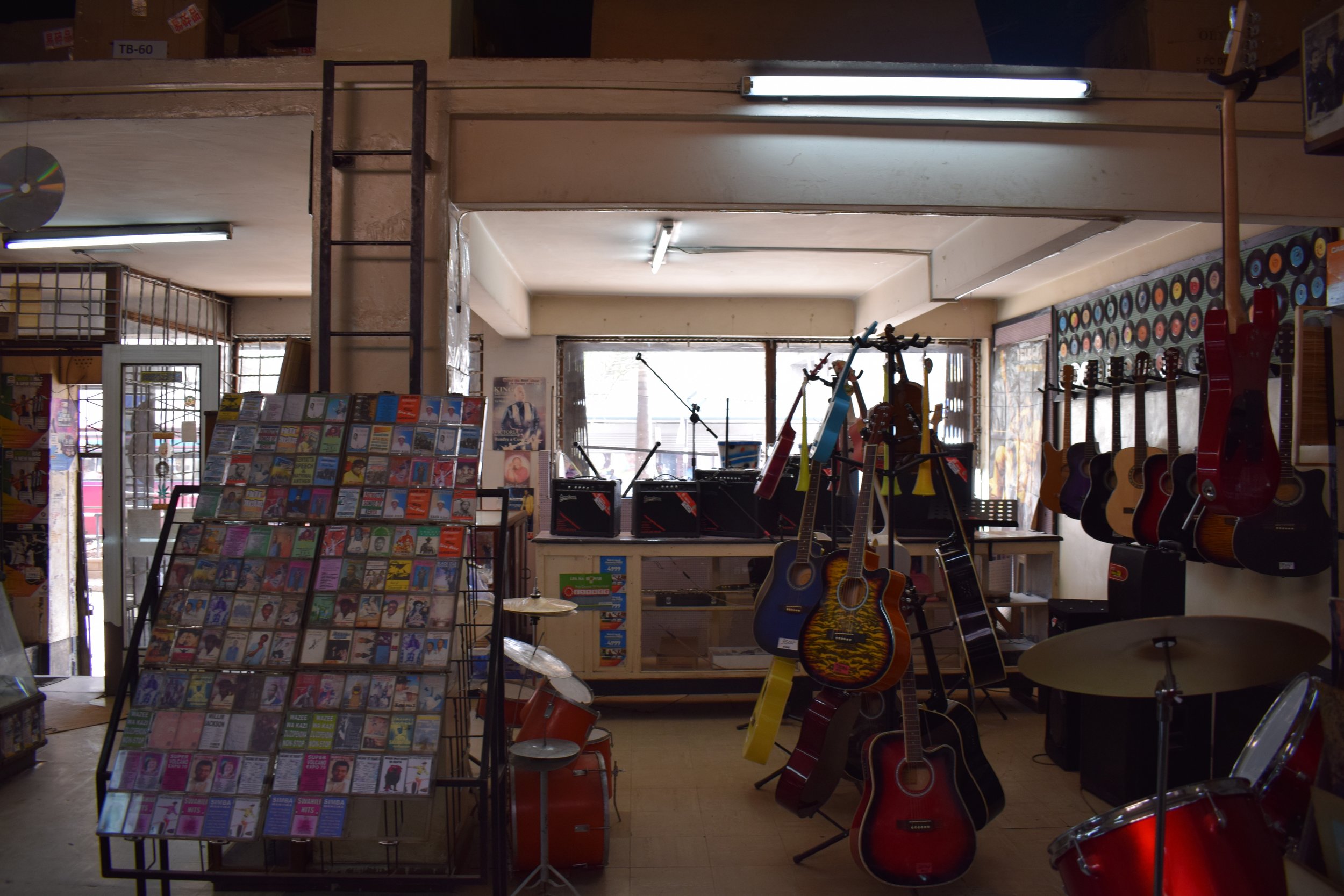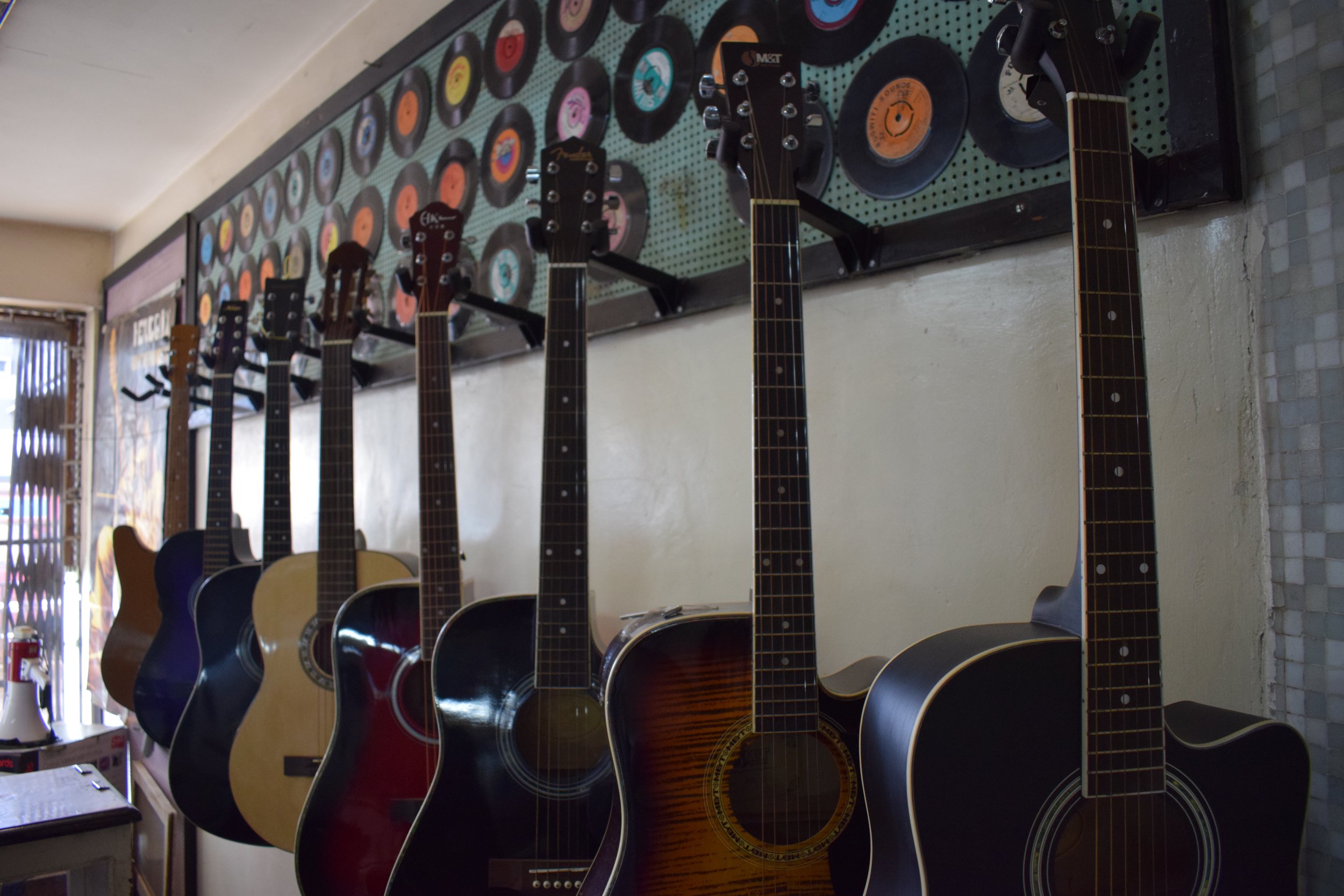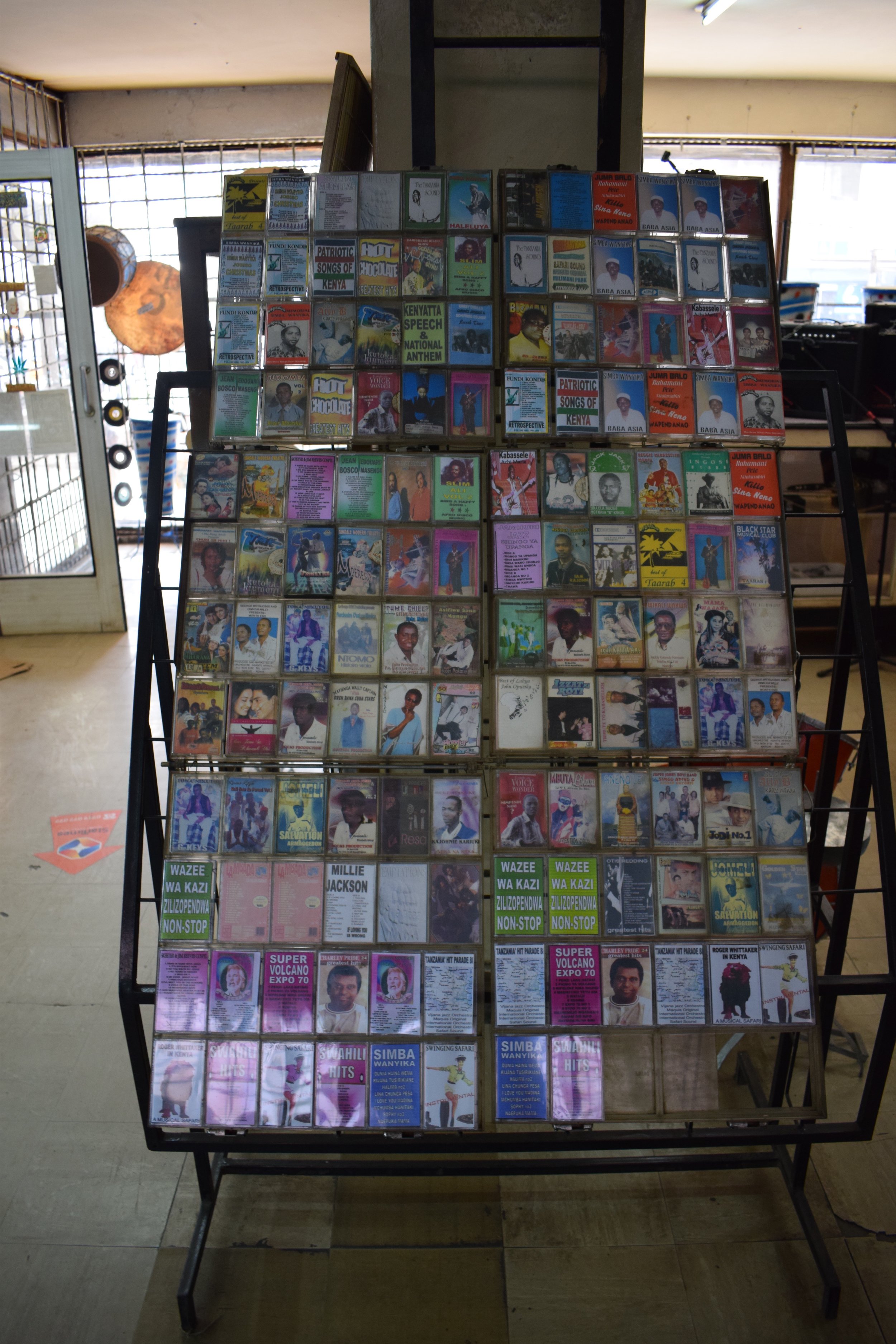How a Series of Unfortunate Events Unlocked East Africa's Largest Music Catalog Release
~3 minute Read
This is a story of how being stranded in Kenya, my bags being stolen, and not knowing where to wander, led me into Melodica Records and the beginning of a musical discovery that allowed for this release.
A lot of misfortune had to occur, in order for me to be ready spiritually and physically (I had no bags to lug around Nairobi) for walking into the store. As it turned out, I tried to visit twice earlier on a friend’s suggestion, but I found the store closed both times. By sheer airline ticketing unluckiness, I was stranded alone in Nairobi for an additional day, while my friends continued the journey. With nowhere else to go, I found my way to Melodica Music Store in downtown and gave it one more chance.
The store is located right off of a bustling major boulevard in downtown, Tom Mboya Street, smack in the middle of a big shopping promenade. Outside is a chaotic blend of traders shouting their wares, passerby conversations, and massive mutatus blaring hip hop and afrobeat. Walking inside however was like an oasis of smooth grooves. From the wide collection of cassettes, albums, and instruments on display, I knew I would enjoy this place.
I greeted the owner, seated behind the counter, with a warm salutation of peace, “Assalammu Alaykum”. To my delight, he rose from his seat with a smile and introduced himself as Abdul Karim Rashid, proprietor of the store.
“What brought me into the store?”, he asked.
“I’d like to check out some Kenyan and African music, the older the better!” I replied.
He laughed heartily and disappeared into the back, quickly returning with boxes of dusty 45s going back to the 1970s, and he plopped them in front of my listening station.
“Don’t use headphones, play it LOUD, man!”, he commanded me.
First up, I pulled out a record with a striking green label and some very 70’s font--The Metric Jazz Band Vol. 1 with Dr. Richard Mc Onindo.
The guitar steals the show right away. It’s fast paced, it’s upbeat and it’s almost impossible to resist tapping your foot to. The Luo melodies compliment an aggressive and dancy guitar duo over a driving snare.
Abdul Karim tells me the album is based on the Benga style from the Luo tribe of Western Kenya, by Lake Victoria. His father produced the record and co-founded the band with Onindo, pulling together talented musicians they found from different groups.
At the time that Melodica was founded, the major international record conglomerate--Polygram--dominated the industry in Kenya. Abdul Karim explained that Melodica found an opening by focusing on local styles from younger Luo, Lingala, and Swahili musicians who innovated from traditional foundations. “There had been a movement of indigenous music creeping up,” he said.
Of course, since the only pressing plant in Kenya was owned by Polygram, and they gave priority to their releases, Abdul Karim’s father--PLP Dauodia--went to the UK to source another manufacturer. This would be key to ensuring Melodica could continue releasing artists who could never have had access to the Polygram recording studio, manufacturing, and distribution machinery. Artists like Shama Shama from the Democratic Republic of Congo (e. Zaire).
“Shama Shama tracks were recorded in Zabare on reels directly. They brought the reels to Melodica,” Abdul Karim told me. “These guys came from the villages and they had no experience, they weren’t perfect but THEY DID IT MAN! It was very difficult to go about with one drum, wailing on the guitars. People in Congo were so used to perfected, arranged, orchestral music.”
Young artists like Shama Shama could not access the high-end equipment and studios that Polygram controlled, he said. These young Congolese had a very “rough around the edge” style that Polygram did not want to produce. “They’re like the Hip Hop guys, the guys who do it from the street. They did it their own way.”
We immediately struck up a bond and he insisted I joined him for a home-cooked meal while he continued to generously guide me through his catalog. We then moved onto tunes from Tanzania and the Swahili Coast. I’ve always been a huge Hip Hop fan, so I pulled out a familiar sounding name, Black Stars Musical Club. Of course, it sounded nothing like a Mos Def and Talib Kweli record, but it still was an upbeat head nodder that had some recognizable Arab and Indian melodies. You could feel the “chill ocean vibes” of the Indian Ocean as Abdul Karim described.
I was absolutely blown away. I could not imagine a better way to spend my final 6 hours in Kenya. I was in heaven. Every vinyl I pulled from his box brought a new sound, a new history, and yet some echoes of some other African and Afro-caribbean music I was familiar with. I could not believe that so much of this excellent music had not left Melodica’s store! As our afternoon came to an end, Abdul Karim and I resolved to work together and increase access to this music as widely as possible.
After he and his team closed up the shop, Abdul Karim helped me pack up a big box of vinyl and cassette tapes and put me in his friend’s cab straight to the airport. I returned home glowing
with happiness at this rare experience, the new friends I made, and carrying nothing but the clothes on my back and a box of old African 45s.
You can stream all current and upcoming releases from the playlist below:

